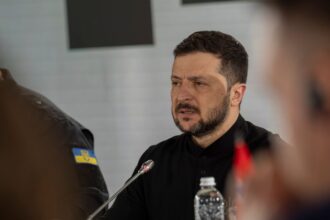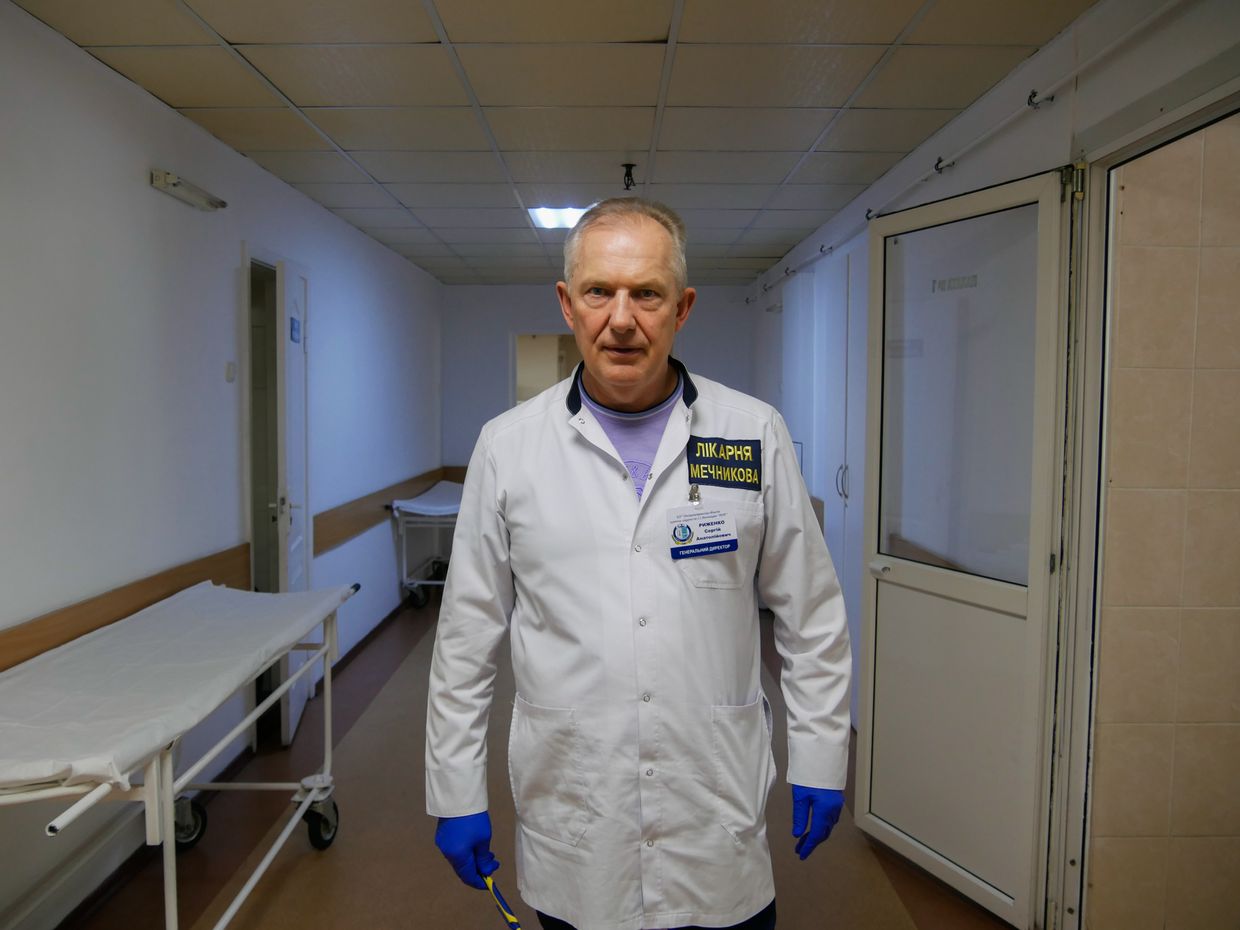This article reports on the experiences of wounded Ukrainian soldiers and the challenges faced by medical staff at Mechnikov Hospital in Dnipro, Ukraine. The hospital is a stabilization point for soldiers injured during the conflict with Russia in Donbas.
Key points from the article:
* Many soldiers arrive at the hospital in critical condition due to injuries sustained during combat.
* There is a shortage of experienced surgeons and general doctors in frontline areas, which can lead to delays in medical treatment.
* The hospital’s staff work tirelessly to treat wounded soldiers, often with limited resources and under intense pressure.
* Despite the challenges, many soldiers survive their injuries due to the expertise and dedication of the hospital’s staff.
The article highlights the human cost of the conflict and the bravery and selflessness of the medical staff at Mechnikov Hospital.













